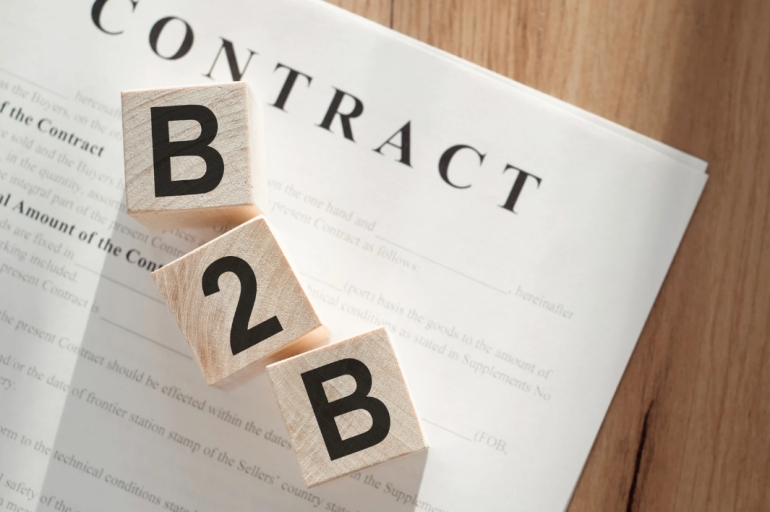
Future Trends: What B2B Buyers Expect From Marketing in 2025
As we approach 2025, B2B buyers are more informed and have greater expectations than ever before. The marketing strategies that were effective a decade ago no longer suffice. These buyers demand a more specialized, efficient and insightful experience. Understanding these expectations is essential for businesses aiming to meet their goals and ensure success in the increasingly competitive marketplace.
Personalisation Expectations
B2B buyers in 2025 will look for a high degree of personalisation. This goes beyond merely addressing customers by their names in email campaigns. Buyers expect recommendations and content customised to their specific needs. AI marketing tools and automation can play a critical role here. AI enables marketers to analyse large datasets to gain insights into buyer behaviour, preferences and pain points. This data-driven approach allows for the creation of highly personalised experiences that resonate with individual clients. Companies like Marketing Eye and technologies like Robotic Marketer offer robust personalisation tools that help businesses target their audience more effectively.
Impact of AI and Automation
AI and automation are not just buzzwords; they are transforming marketing strategies. Automated systems can analyse complex buyer data efficiently and provide actionable insights that human marketers cannot achieve manually. Furthermore, AI marketing tools allow for real-time data analysis, facilitating immediate adjustments to marketing campaigns to better align with buyer needs and trends. The use of Robotic Marketer, for instance, exemplifies this trend, offering an effective solution for personalised marketing strategies that can be adjusted dynamically based on real-time data.
Frictionless Buying Journey
In 2025, B2B buyers will expect a frictionless buying journey. This means that the interaction between the buyer and the seller should be as smooth and time efficient as possible. Businesses need to ensure that their digital marketing strategies are aligned with this expectation. This includes having user-friendly websites, streamlined purchasing processes and responsive customer support. Marketing strategies must focus on reducing any form of friction that could impede the buyer journey. Tools that enhance user experience and simplify the buying process will be fundamental in achieving this.
The Role of Digital Marketing
Digital marketing remains a cornerstone of a frictionless buying journey. Companies need to harness the capabilities of digital marketing to make information readily accessible and transactions seamless. Utilizing platforms that facilitate easy navigation, quick transactions and immediate support can significantly enhance the buyer's experience. In this regard, integrating features such as chatbots, quick response codes (QR codes) and user-centric design elements can make a substantial difference. AI-driven chatbots, for example, can provide real-time assistance, ensuring that buyers always receive the support they need.
Content Preferences
B2B buyers in 2025 will have clear content preferences. They will be looking for content that is not only informative but also engaging and relevant to their specific industries. High-quality content that addresses their problems, provides solutions and highlights case studies or success stories will be important. Content marketing must be designed to offer value from the outset, establishing trust and authority. Businesses should focus on creating a diverse range of content, including blogs, white papers, videos and webinars, to meet varied consumption preferences.
Importance of Data-Driven Content
Data-driven content is indispensable in 2025. Marketers need to produce content based on insights gathered from thorough analysis. This ensures that the content is relevant and caters to the specific interests and needs of the target audience. Tools like AI can help in this regard by analysing consumer behaviour and preferences to specialize content more precisely. Incorporating data-driven insights into content creation can significantly enhance engagement and conversion rates, making marketing efforts more effective and aligned with organisational objectives.
Robotic Marketer Personalisation Tools
Technologies such as Robotic Marketer are set to transform how businesses approach personalisation. These tools go beyond standard personalisation, using sophisticated AI to create more nuanced and effective marketing strategies. Robotic Marketer can analyse enormous datasets, segment audiences with precision and deliver personalised content that matches the unique requirements of each prospect. This means that businesses can offer a personalised experience to a large audience without the need for extensive manual labour. Utilizing such tools can lead to higher engagement rates, better customer retention and ultimately drive growth and success.
To fully benefit from personalisation tools, businesses must integrate them into their broader marketing strategy. This involves aligning personalisation initiatives with other marketing objectives such as lead generation, brand awareness and customer engagement. By creating a cohesive strategy that incorporates AI-driven insights, businesses can ensure that their marketing efforts are both efficient and impactful. Personalisation tools should be seen as an integral part of the marketing strategy, not a separate component, to maximise their potential and achieve better results.
In conclusion, B2B marketing in 2025 is set to be heavily influenced by advancements in AI and the increasing expectations of buyers for personalised, efficient and frictionless buying experiences. Companies that invest in cutting-edge technologies and data-driven strategies will be best positioned to meet these demands and achieve significant growth.



Leave a comment
Make sure you enter all the required information, indicated by an asterisk (*). HTML code is not allowed.